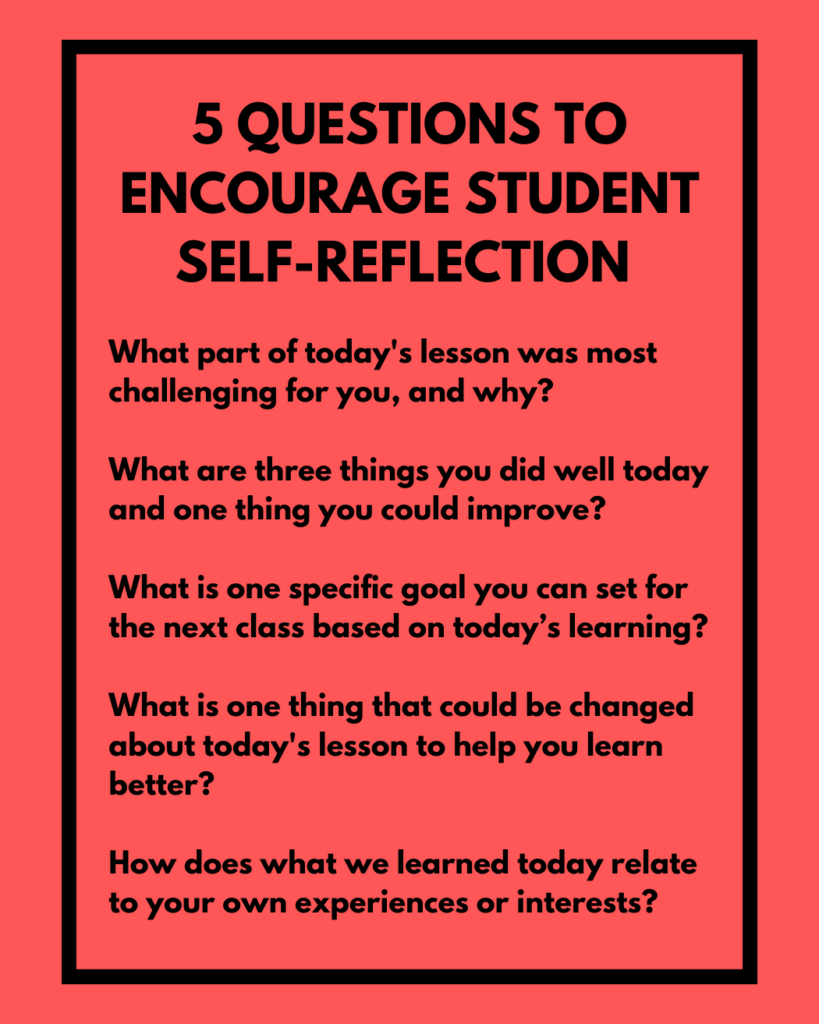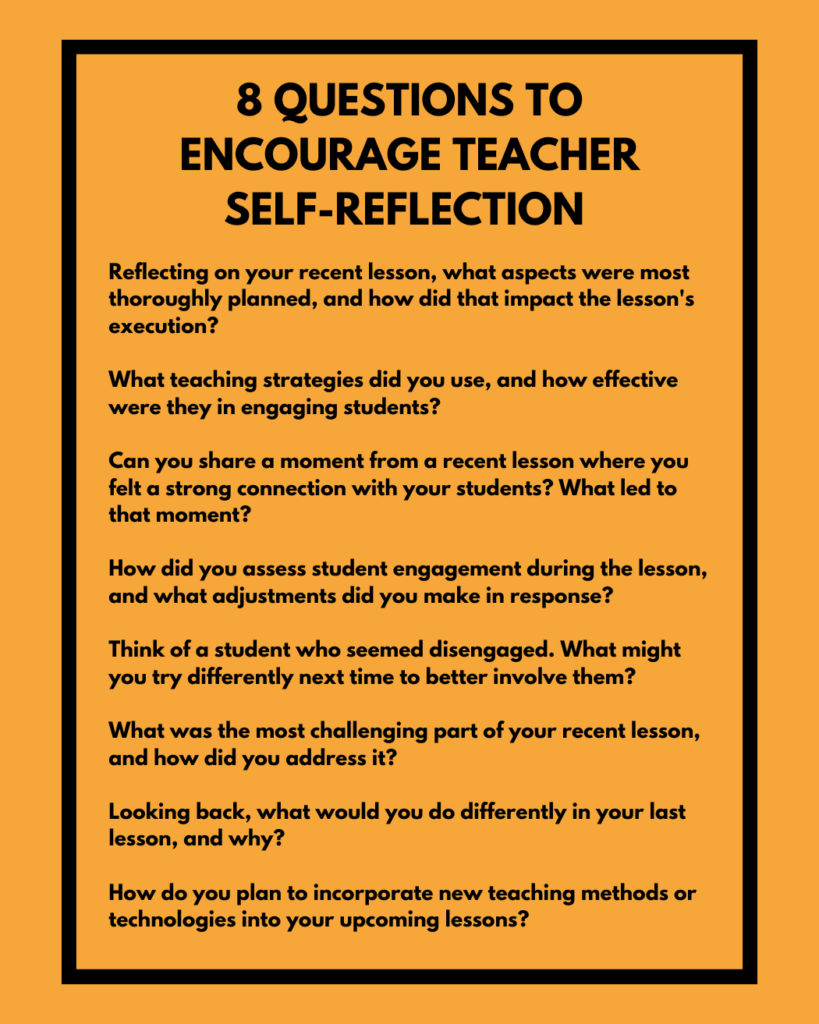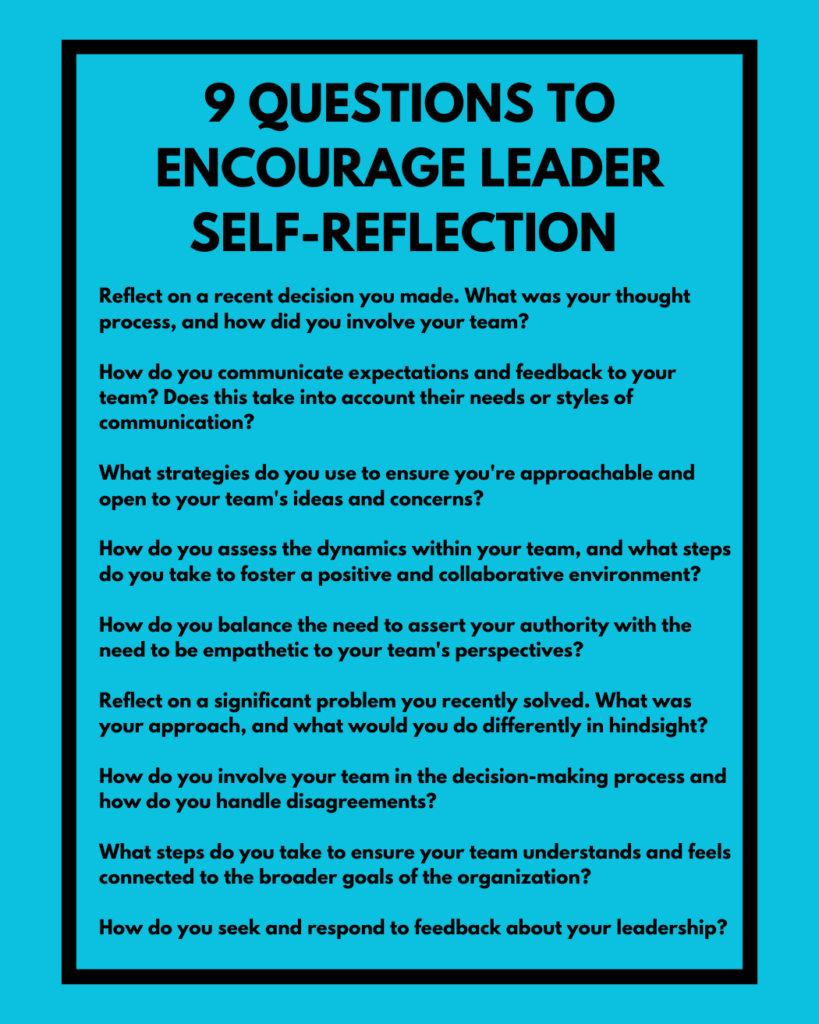“Do the best you can until you know better. Then, when you know better, do better,” is widely attributed to Maya Angelou. What a great thought as we near the end of this year and take time to reflect on its many facets. Through self-reflection, we can have those “aha moments” leading us to make improvements. Self-reflection is great for students, educators, and leaders. In the classroom, students can benefit by gaining greater critical thinking and deeper understanding. Educators who routinely practice self-reflection will experience improved instructional practice and well-being. And leaders who practice self-reflection should notice positive results in self-awareness and emotional intelligence.
But, is self-reflection something mystical? Do I need to sit with my legs crossed and hum? Exactly how do I do this “self-reflect” thing effectively? I’m glad you asked. Here are some tips depending on your role.
Self-Reflection for Students
Regardless of what subject or grade level you teach, your students can benefit from self-reflecting. They can reflect on their work individually or through group work. Thinking about our thinking, metacognition, can be a powerful way to deepen and extend the learning that is possible. Before an actual lesson, let your students know that after the lesson and practice time, you will give them a chance to think about their learning. You might even share these questions ahead of time with them:
- What part of today’s lesson was most challenging for you, and why?
- What are three things you did well today and one thing you could improve?
- What is one specific goal you can set for the next class based on today’s learning?
- What is one thing that could be changed about today’s lesson to help you learn better?
- How does what we learned today relate to your own experiences or interests?

Give students adequate wait time and allow them to jot down their thoughts before sharing with a partner or their group. If your students are new to self-reflection, you might give them all the questions but ask them to share just one response.
Self-Reflection for Educators
As an educator, it is important to reflect on our teaching to make improvements. Sometimes, we might ask a coworker we trust to observe a lesson and give us feedback. But being observed can feel intimidating, or we might not want to impose on our peers’ time. Here are some questions you ask yourself to encourage self-reflection. They could also be asked as part of a faculty meeting to foster sharing and collaborative improvement:
- Reflecting on your recent lesson, what aspects were most thoroughly planned, and how did that impact the lesson’s execution?
- What teaching strategies did you use, and how effective were they in engaging students?
- Can you share a moment from a recent lesson where you felt a strong connection with your students? What led to that moment?
- How did you assess student engagement during the lesson, and what adjustments did you make in response?
- Think of a student who seemed disengaged. What might you try differently next time to better involve them?
- What was the most challenging part of your recent lesson, and how did you address it?
- Looking back, what would you do differently in your last lesson, and why?
- How will you incorporate new teaching methods or technologies into your upcoming lessons?

If doing this in a faculty meeting setting, give plenty of wait time and allow teachers to respond to the question they feel most comfortable with. If you do this individually, consider journaling your responses in a notebook every few weeks. This will give you a clearer picture and hopefully lead to more “aha moments.”
Self-Reflection for Leaders
As a leader, there are many experiences you can reflect on to become more self-aware and improve your leadership skills. In addition to self-reflection, encourage honest feedback from colleagues, mentors, and team members. Be open to hearing both positive and negative feedback and avoid becoming defensive. Actively listen to understand their perspectives and identify areas for improvement.
Internally, pay attention to your emotions in different situations, particularly challenging ones. Identify your triggers and how you typically react. Reflect on whether your reactions are helpful or hindering your leadership effectiveness. Clarify your core values and how they guide your leadership decisions. Consider your motivations for leading and how they align with your values. Reflect on whether your actions are consistent with your values and beliefs. Think about how your words, actions, and behaviors affect others. Evaluate whether you inspire, motivate, and empower your team or create a negative work environment.
To make the most growth as you self-reflect, consider scheduling an ongoing block of time on your calendar at bi-weekly or monthly intervals where you take time to reflect and contemplate how things are going and ways to improve. Here are some questions you might consider asking yourself:
- Reflect on a recent decision you made. What was your thought process, and how did you involve your team?
- How do you communicate expectations and feedback to your team? Does this take into account their needs or styles of communication?
- What strategies do you use to ensure you’re approachable and open to your team’s ideas and concerns?
- How do you assess the dynamics within your team, and what steps do you take to foster a positive and collaborative environment?
- How do you balance the need to assert your authority with the need to be empathetic to your team’s perspectives?
- Reflect on a significant problem you recently solved. What was your approach, and what would you do differently in hindsight?
- How do you involve your team in the decision-making process, and how do you handle disagreements?
- What steps do you take to ensure your team understands and feels connected to the broader goals of the organization?
- How do you seek and respond to feedback about your leadership?

So, as we embrace the power of self-reflection, let’s remember it’s not just a periodic exercise but a continuous journey toward personal and professional growth. Whether you’re a student mastering critical thinking, an educator enhancing teaching methods, or a leader honing emotional intelligence, self-reflection is your compass. It guides you through the complexities of your role, helping you to recognize both your strengths and areas needing improvement. Consider these reflective questions as opportunities to go deeper into your experiences, to learn, and to enhance what you are already doing. As this year draws to a close, begin a habit of self-reflection to know better so that you can do better.

